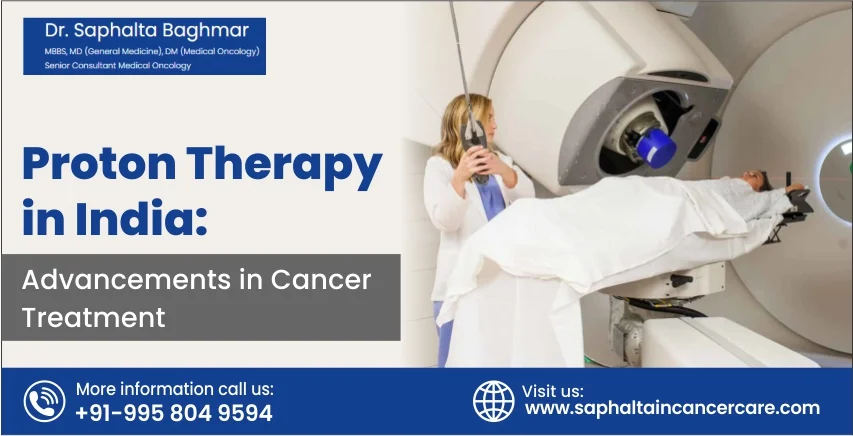Chemotherapy remains an effective weapon in the fight against cancer. It is considered an important part of cancer treatment, for the destruction of tumors and elimination of their further growth or the relief of symptoms. Chemotherapy is given much heed in Delhi where many people understand its efficiency since medical services in the city are considered very progressive. There are the best oncologist in Delhi NCRofferingone of thebest cancer treatments in India.
How Is Chemotherapy Given to Patients?
The therapy can be given orally including chemotherapy drugsor chemo pills, topically, or through an injection/infusion directly to the affected part of the body or through the bloodstream. The treatment is supposed to be effective in actively proliferating cancer cells. The problem is that chemotherapy for breast canceralso influences normal cells leading to greater side effects.
Ways of Giving Chemotherapy
- Intravenous (IV) Chemotherapy: This is the most popular method of administering drugs through the venous system making it convenient for the drug to access the whole body.
- Oral Chemotherapy: Tablets that may be self-administered orally in capsule forms like chemo pillsor chemotherapy drugs. It is easy and needs a regular schedule on when you are supposed to use the suppositories.
- Intramuscular (IM) and Subcutaneous (SC) Injections
- Intrathecal and Intracavitary Chemotherapy
What Exactly Are Intramuscular and Subcutaneous Injections?
- Intramuscular (IM) injections deliver chemotherapeutic agents into the different muscles of an individual. It also allows a slow and steady delivery of the medicine into the bloodstream, in this case for four hours. This site is commonly found on the arm, thigh, or buttock area.
- Subcutaneous (SC) injections are those in which the drug is inserted into the tissue just below the skin and above the muscle layers. It is also less traumatic than the previous one and can be done in the patient’s home. It is being used in drug moieties that require the rate of absorption to be slow.
Related Blog:Immunotherapy vs Chemotherapy: Which Treatment is Better?
What Is Intrathecal & Intracavitary Chemotherapy?
- Intrathecal chemotherapy is the procedure of administering drugs directly into the area of cerebrospinal fluid found in the lumbar region of the spinal cord through the lumbar puncture method. This method is most effective for those types of cancer that have affected the patient’s brain or spinal cord.
- Intracavitary chemotherapy involves introducing drugs within one or more cavities in the body like the peritoneal or pleural space. This technique permits high drug concentration levels in some specific areas of the body, making this beneficial in treating cancers found in such locations.
What Exactly Are Chemotherapy Creams?
Creams can be categorised under topical formulations or treatments administered on the skin. It is used in some skin cancers instead of using systemic chemotherapy as a technique for treating cancer. The drug gradually reaches the carcinogenic cells locally through the skin, avoiding the adverse effects on the whole body.
Consent from Patient & Family Before Chemotherapy Treatment
In cases where the patient has decided to undergo chemotherapy, informed consent is mandatory before therapy initiation. This includes explaining the treatment plan to the patient and the immediate family in light of the proposed treatment and its probable impacts.
Points to Remember When Receiving Chemotherapy at Home
- Follow Instructions: Pay special attention to dosing intervals and the storage directions given for the product.
- Monitor Side Effects: Any side effects experienced with the drug use should be noted down and relayed to the physician promptly.
- Maintain Hygiene: This is one of the preventive measures where you should keenly avoid unnecessary contact that might cause ailments.
- Have Support: Assure there is always someone to assist in giving out the medications with instructions on the potential side effects to look out for.
How to Plan Your Chemotherapy Treatment
Planning your chemotherapy treatment involves several steps:
- Consultation: Consult with your oncologist to know more about the best treatment path.
- Schedule: For a workable and convenient treatment plan organize the schedule according to your daily life and work.
- Nutrition and Rest: It is required to tone the body and for this reason, it is best to stay away from junk foods and get enough sleep.
Follow-up After Chemotherapy Treatment
Follow-up visits are also crucial in assessing your condition, evaluating the side effects that might have resulted from the therapy, and identifying any evidence of cancer relapse. Your healthcare provider will also have to carry out a physical assessment, blood tests, and imaging studies, depending on your procedures.
Get A Second Quote From Experts
Want to know about the best cancer treatment in Indiaand the best oncologist in Delhi NCRor have any questions regarding it for yourself or a loved one? Sign up for a consultation with our specialist oncologists. Allow us to assist you throughout your cancer treatment process, making it easier with empathetic and professional services individualised to your needs.
FAQ'S
1. At what stage of cancer is chemotherapy used?
Chemotherapy can be a part of cancer treatment at any stage, from stage IA/IB to stage IV. Your oncologist could consider it as the primary treatment method or a part of your extensive cancer care plan. It is usually a supportive treatment during the initial stages, where surgical tumor removal is possible. Chemotherapy is performed before the surgery to shrink the tumor or after the surgery to kill any remaining cancerous cells in the area. During the later stages, chemotherapy usually forms a part of the primary treatment plan.
2. How many days is chemotherapy taken for?
A course of chemotherapy can last anywhere between 3 to 6 months, based on numerous factors. Each course consists of about 2 to 6 cycles of duration ranging from a few days to weeks. The drugs used for the treatment, the stage and type of cancer, and the mode of administration of the drugs are the major determining factors here.
3. What exactly does chemotherapy do?
Chemotherapy is a cancer treatment method that uses special strong drugs to kill cancerous cells. These cells have the property of dividing more rapidly than the healthy cells in the human body. The chemotherapy drugs identify this property and target the rapidly growing cells, thus eliminating the cancerous tumor. However, this also causes damage to the healthy cells in the body that divide faster than other healthy cells.
4. What cancer is best treated with chemotherapy ?
Chemotherapy is used in the treatment of several types of cancer. Some of the most common cancers including breast and lung cancer frequently use chemotherapy as a part of the primary treatment plan. Multiple myeloma, lymphoma, leukemia, sarcomas, Hodgkin’s disease, ovarian cancer, and other forms of the disease can also be treated with chemotherapy. The extent of effectiveness of this treatment varies among different patients. Therefore it is up to your oncologist to device the best cancer care plan for you and decide whether or not to keep chemotherapy as a frontline treatment for your condition.


